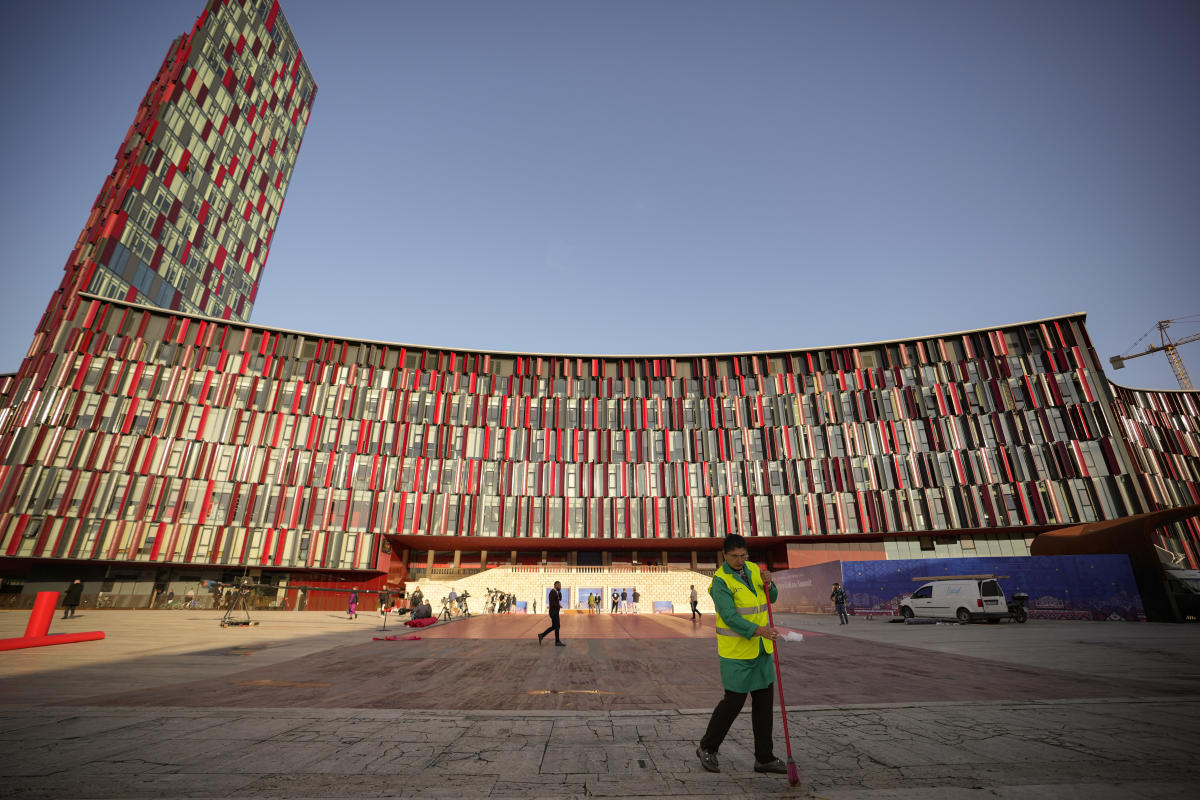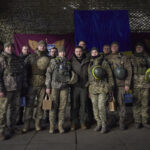
TIRANA, Albania (AP) — EU leaders and their Western Balkan counterparts gathered Tuesday for talks aimed at strengthening their partnership as Russia’s war in Ukraine threatens to reshape the geopolitical balance in the region.
The EU wants to use the one-day summit in Albania’s capital to tell leaders from Albania, Bosnia, Kosovo, Montenegro, North Macedonia and Serbia that they have futures within the wealthy economic bloc and give them concrete signs, rather than just promises, that they will join one day.
European Council President Charles Michel, who is jointly chairing the summit, hailed it as a “symbolic meeting” that will cement the futures of the six countries within Europe.
“I am absolutely convinced that the future of our children will be safe and more prosperous with the Western Balkans within the EU, and we are working very hard in order to make progress,” he told reporters.
As proof of the bloc’s commitment, Michel underscored EU energy support to the region in light of the war’s impact on supplies and prices, as well as a mobile telephone roaming charges agreement.
Since Russia invaded Ukraine in February, the EU’s top diplomat, Josep Borrell, has been repeating that stepping up the bloc’s engagement with the six nations is more crucial than ever to maintaining Europe’s security.
As Europe’s relationship with Russia deteriorates further because of the war, tensions have also mounted in the Balkans and the EU wants to avoid other flashpoints close to its borders.
“The war is sending shockwaves, it affects everybody, and especially this region,” Borrell told reporters in Tirana, adding that the aim of the summit would be to mitigate the consequences of the war in a neighborhood that was torn by conflicts following the disintegration of Yugoslavia in the 1990s.
According to a draft of the declaration to be adopted at the summit, the EU will repeat “its full and unequivocal commitment to the European Union membership perspective of the Western Balkans” and call for an acceleration of accession talks with the incumbents.
In return, the EU expects full solidarity from its Western Balkans partners and wants them fully aligned with its foreign policies.
That particular point has been problematic with Serbia, whose president, Aleksandar Vucic, claims he wants to take Serbia into the European Union but has cultivated ties with Russia.
Although Serbia’s representatives voted in favor of various U.N. resolutions condemning Russia’s invasion of Ukraine, Vucic has refused to explicitly condemn Moscow. His country has not joined Western sanctions against Russia over the war.
“The Western Balkans have decided to embark on the European path, this is a two-way street,” Borrell said. “And we also expect the region to deliver on key reforms, and certainly to show the will to embrace the European Union’s ambition and spirit. Many do, but we see also hesitations.”
Although the progress of the six nations toward EU membership had stalled recently, there has been some progress over the past few months.
This summer, the EU started membership negotiations with Albania and North Macedonia following years of delays. And Bosnia moved a small step closer on its path to joining the powerful economic bloc when the commission advised member countries in October to grant it candidate status despite continuing criticism of the way the nation is run.
Kosovo has only started the first step, with the signing of a Stabilization and Association Agreement. It said it would apply for candidate status later this month.
The EU last admitted a new member — Croatia, which is also part of the Balkans — in 2013. Before that, Bulgaria and Romania joined in 2007. With the withdrawal of the United Kingdom in 2021, the EU now has 27 member nations.
“We need the EU to move from words to deeds,” said Kosovo president Vjosa Osmani.
To help households and businesses weather the impact of Russia’s war on energy and food security, the EU has earmarked one billion euros in grants to the Western Balkans, hoping the money will encourage double the investment.
Leaders will also discuss migration issues that remains one of Europe’s biggest concerns in light of the number of migrants trying to enter the bloc without authorization via the Western Balkans, notably through Serbia.
The EU’s border agency Frontex said it had detected more than 22,300 attempted entries in October, nearly three times as many as a year ago.
Around 500 Frontex officers are working along the EU’s borders with Balkan nations but staff will soon be deployed inside the region itself. Serbia’s border with Hungary is a notorious hotspot. Late last month, a man was shot and wounded and a number of others were detained following reports of a clash between migrants in a town on the Serbian side of the border. Europol police agents will also be sent there.
One cause of the movements is that Serbia, which wants to join the EU, has not aligned its visa policies with the bloc. People from several countries requiring visas to enter the bloc arrive in Serbia without such paperwork then slip through. Many from Burundi, Tunisia, India, Cuba and Turkey enter the EU this way.
___
Lorne Cook in Brussels contributed to this story.




